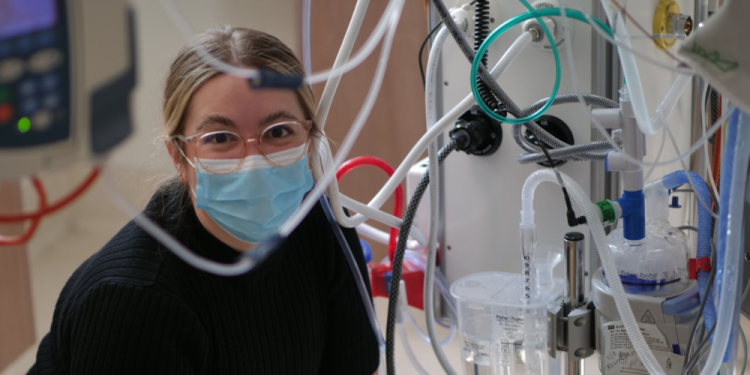
Babies born before 28 weeks’ gestation often need help with breathing because their lungs are not yet fully developed. This often involves support from a ventilator which provides “breaths” via a tube in the windpipe.
This mode of support carries many risks including damage to the lungs and infection. Therefore, the clinical team try and remove the tube as soon as possible. The process of removing the tube is called extubation and is often associated with periods of instability for the baby.
Lead researcher Anna Kidman said a main concern after removing the breathing tube is ‘extubation failure’, the inability of a baby to breathe on its own, requiring the reinsertion of a breathing tube.
“After observing infants experiencing extubation failure, I became interested in how we could improve the process of removing the breathing tube and keep the babies off the ventilator,” Ms Kidman said.
“If we can do this, we have the potential to greatly improve the care and outcomes of this at-risk population,” Ms Kidman said.
In the Extubation CPAP Level Assessment Trial (ÉCLAT), Ms Kidman and her team found that applying a higher than standard level of Continuous Positive Airway Pressure (CPAP) to vulnerable babies reduces the risk of extubation failure.
Ms Kidman said the risk of extubation failure was reduced by 22 per cent in those extubated to a higher CPAP level of 10 cm H2O compared to the standard practice of CPAP level 7 cm H2O.
A total of 138 extremely preterm babies from three Australian Neonatal Intensive Care Units (NICUs), including the Women’s NICU, were involved in the three-year study.
Ms Kidman, a neonatal clinical nurse specialist, said the research team hoped the study would improve respiratory outcomes, reduce the need for reintubation, and inspire further research in neonatal respiratory care.
“It is a privilege to be involved in neonatal research and I look forward to further expanding our respiratory research as part of a world class team,” Ms Kidman said.
The British Medical Journal published the protocol for this trial.